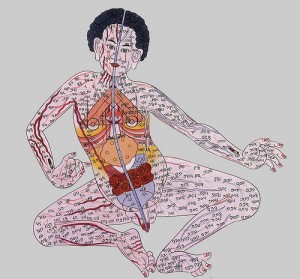 This article is from the Atlantic Monthly Magazine. I look at this as a companion piece to the one I posted on Deepak Chopra. Freedman doesn’t really address the paradigm shift that will be required by modern medicine in order to accept many alternative methods and approaches to healing. The article does give a good picture, though, of where things are at right now between scientific and holistic medicine.
This article is from the Atlantic Monthly Magazine. I look at this as a companion piece to the one I posted on Deepak Chopra. Freedman doesn’t really address the paradigm shift that will be required by modern medicine in order to accept many alternative methods and approaches to healing. The article does give a good picture, though, of where things are at right now between scientific and holistic medicine.
Freedman, like Chopra, points out that drugs and surgery are the treatments of choice in modern allopathic medicine. He goes even further—and it’s an extremely important insight—he suggests that in the practice of modern medicine, physicians often must wait for the patients to get sufficiently sick or debilitated to a point where drugs and surgery are then finally required.
This article has stirred up a very positive debate about this meeting, not just between cultures, but between metaphysics as well. You can follow the debate on the Atlantic Monthly website. The couple essays I’ve read were quite good.
Tom Z
The Triumph of New Age Medicine
Medicine has long decried acupuncture, homeopathy, and the like as dangerous nonsense that preys on the gullible. Again and again, carefully controlled studies have shown alternative medicine to work no better than a placebo. But now many doctors admit that alternative medicine often seems to do a better job of making patients well, and at a much lower cost, than mainstream care—and they’re trying to learn from it.
By DAVID H. FREEDMAN
I MEET BRIAN BERMAN, a physician of gentle and upbeat demeanor, outside the stately Greek columns that form the facade of one of the nation’s oldest medical-lecture halls, at the edge of the University of Maryland Medical Center in downtown Baltimore. The research center that Berman directs sits next door, in a much smaller, plainer, but still venerable-looking two-story brick building. A staff of 33 works there, including several physician-researchers and practitioner-researchers, funded in part by $35 million in grants over the past 14 years from the National Institutes of Health, which has named the clinic a Research Center of Excellence. In addition to conducting research, the center provides medical care. Indeed, some patients wait as long as two months to begin treatment there—referrals from physicians all across the medical center have grown beyond the staff’s capacity. “That’s a big change,” says Berman, laughing. “We used to have trouble getting any physicians here to take us seriously.”
The Center for Integrative Medicine, Berman’s clinic, is focused on alternative medicine, sometimes known as “complementary” or “holistic” medicine. There’s no official list of what alternative medicine actually comprises, but treatments falling under the umbrella typically include acupuncture, homeopathy (the administration of a glass of water supposedly containing the undetectable remnants of various semi-toxic substances), chiropractic, herbal medicine, Reiki (“laying on of hands,” or “energy therapy”), meditation (now often called “mindfulness”), massage, aromatherapy, hypnosis, Ayurveda (a traditional medical practice originating in India), and several other treatments not normally prescribed by mainstream doctors. The term integrative medicine refers to the conjunction of these practices with mainstream medical care. Read the entire article here.
Photo: Courtesy of: http://www.flickr.com/people/39453315@N04/
